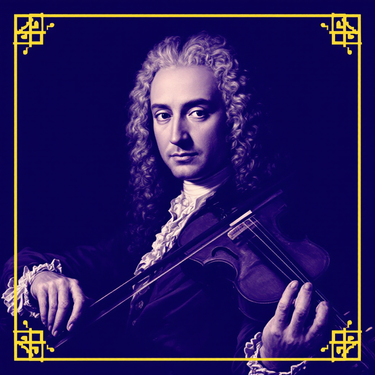Antonio Lucio Vivaldi – The Baroque Virtuoso and Concerto Pioneer
Antonio Lucio Vivaldi (March 4, 1678 – July 28, 1741) was an Italian Baroque composer, virtuoso violinist, music teacher, impresario, and ordained priest. A towering figure in European classical music, Vivaldi is best known for his revolutionary contributions to the concerto form and his vibrant, expressive compositions. His mastery of orchestration, harmony, and melodic invention made him one of the most influential composers of the Baroque era.
A Prolific Composer and Concerto Innovator
Vivaldi composed an astonishing number of works across various genres, including nearly 500 concerti, many of which are still widely performed today. A concerto is a musical composition where a solo instrument is accompanied by an orchestra, and Vivaldi played a crucial role in refining this form. His approach emphasized contrast between the soloist and the ensemble, creating a dynamic interplay that heightened the drama and excitement of the music.
Among his many innovations, Vivaldi helped establish the three-movement "fast-slow-fast" concerto structure, which remains a defining characteristic of concerti to this day. He also perfected the use of the ritornello—a recurring orchestral theme that alternates with solo passages—providing cohesion and dramatic tension in his compositions. His works showcase a rich variety of solo instruments, including the violin, cello, flute, oboe, bassoon, mandolin, and even keyboard instruments, demonstrating his versatility and deep understanding of instrumental color.
The Four Seasons – A Masterpiece of Programmatic Music
Vivaldi’s most famous work, Le Quattro Stagioni (The Four Seasons), is a set of four violin concerti that vividly depict the changing seasons. Each concerto is accompanied by a sonnet, likely written by Vivaldi himself, which describes natural imagery and human experiences associated with each season. Through brilliant use of orchestration, Vivaldi paints sonic landscapes—birds chirping in Spring, a fierce storm in Summer, a hunt in Autumn, and the cold winds of Winter. This work remains one of the most celebrated examples of programmatic music, where music is used to tell a story or paint a scene.
Beyond Concerti – Sacred and Operatic Works
While Vivaldi is most renowned for his instrumental works, he was also a prolific composer of sacred choral music and operas. His sacred compositions, such as the Gloria in D Major (RV 589), are praised for their uplifting melodies and intricate choral arrangements. As an opera composer, Vivaldi wrote over 50 operas, though many remain lesser-known today. His operatic works, characterized by virtuosic arias and dramatic expressiveness, were performed throughout Italy and beyond.
The Red Priest and His Musical Influence
Ordained as a priest in 1703, Vivaldi was known as Il Prete Rosso (The Red Priest), a reference to his distinctive red hair. However, his poor health led him to focus primarily on music rather than religious duties. He spent much of his career in Venice, where he worked as a music teacher and composer at the Ospedale della Pietà, an orphanage with a renowned music program for young girls. This institution became an important center for Vivaldi’s musical experimentation and performance.
Vivaldi’s influence extended beyond his own time, inspiring composers such as Johann Sebastian Bach, who transcribed several of his concerti for keyboard. Despite his immense success during his lifetime, Vivaldi fell into obscurity after his death in 1741 and was buried in an unmarked grave in Vienna. However, the 20th century saw a revival of interest in his music, leading to the widespread recognition he enjoys today.
Legacy and Lasting Impact
Vivaldi’s contributions to music are immeasurable. His work helped shape the Baroque concerto form, influencing generations of composers. His bold harmonic progressions, lyrical melodies, and rhythmic vitality continue to captivate audiences worldwide. Today, his music is performed in concert halls, operas, and films, reaffirming his status as one of the greatest composers in Western classical music history.
From his breathtaking violin concerti to his deeply expressive choral works, Vivaldi’s music remains a testament to the power of melody and emotion, ensuring his place among the greatest musical geniuses of all time.
























